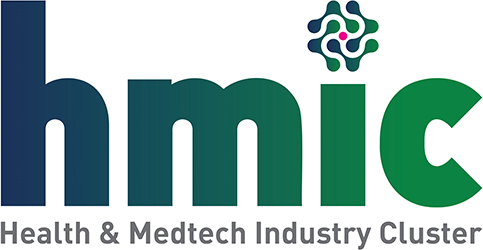A partnership between Hunter Medical Research Institute (HMRI) researchers from the University of Newcastle and Australian biotech company, Ena Respiratory, has been instrumental in developing a new preventative nasal spray treatment by that could protect people from COVID-19 infection and prevent transmission. This project is another example of how Hunter-based HMRI researchers are collaborating nationally and internationally on translating research to assist in the commercialisation of treatments that can improve well-being and save lives.
HMRI is providing support and infrastructure to attract and retain leading researchers as well as assisting in supporting partnerships with industry.
A potential nasal spray to fight COVID-19
The treatment, INNA-051, works by stimulating the innate immune system, the first line of defence against viruses. It has proved remarkably successful in reducing COVID-19 viral replication.
Research published in September 2020 by Public Health England’s (PHE) deputy director, Professor Miles Carroll, and researchers at the Peter Doherty Institute showed INNA-051 reduced viral replication and shedding in the nose and throat by up to 96 per cent in a gold-standard COVID-19 animal study.
HMRI researcher involvement
Associate Professor Nathan Bartlett, from the University of Newcastle, is head of HMRI’s Viral Immunology and Respiratory Disease group. He is one of the Ena Respiratory’s key advisors and research collaborators. He and his team had been assisting Ena Respiratory in developing the treatment to boost the natural human immune system to fight common cold- and flu-viruses in the nose and throat to prevent severe lung disease.
“We were researching INNA-051 prior to COVID-19 and discovered that it is very effective at priming the airways to more rapidly and effectively respond to a viral infection,” Nathan said.
“When the COVID 19 pandemic hit we were able to quickly pivot the research focus to look at the applicability to COVID-19,” he said.
“The proof of concept data generated by HMRI’s team was instrumental in ensuring the treatment was ideally placed to be tested against the virus that causes COVID-19.”
Industry partnerships
In 2015, Nathan was initially engaged by biotech seed and venture capital firm, Brandon Capital Partners, to develop the pre-clinical evidence to help it determine whether it should continue to invest in Ena Respiratory.
“Brandon Capital introduced me to Ena and that established my ongoing research relationship with them.”
HMRI Support
“It was my partnership with HMRI which was attractive to Brandon Capital because I had capacity and support to rapidly undertake the research needed to determine the viability of Ena’s asset.” “As HMRI is a partnership between the University of Newcastle and the local Hunter New England Health District, I had a relationship with a major teaching hospital to be able to acquire samples vital for that pre-clinical work.” “HMRI seed funded my setting up of the initial virus infection models to allow me to start the work for Brandon Capital. My team and I benefit from working in state-of-the-art labs in the HMRI building on the John Hunter Hospital campus.”
Nathan said it was the world class research emanating from HMRI that attracted him to Newcastle when considering institutes in Australia to continue his research. At the time he had been working for 13 years at Imperial College London – one of the world’s top 10 universities.
“HMRI had a world leading respiratory research team, integration with a major hospital, and a focus on basic and translational research – so it met all of my needs.”
“The infrastructure and other support that HMRI provides to researchers assists in the attraction and retention of top researchers to the Hunter region.”
More information: www.hmri.org.au


